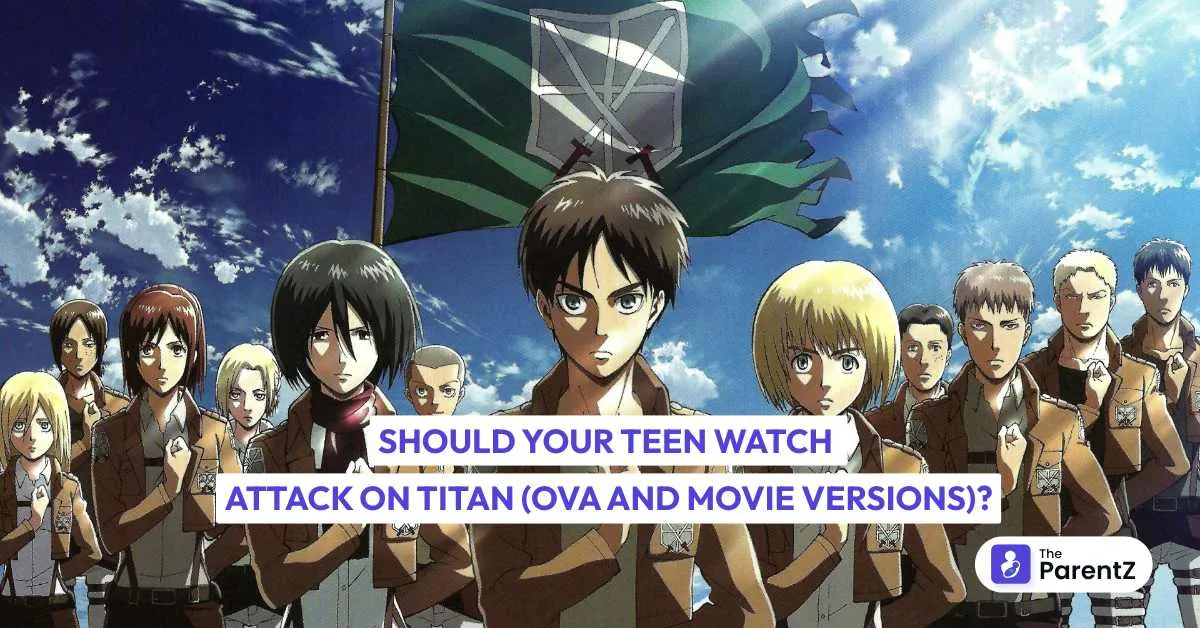Introduction
The main Attack on Titan series is already known for its intense themes and brutal storytelling, but the OVAs and movies offer a deeper dive into its universe—sometimes quieter, sometimes more disturbing. These supplemental stories explore personal trauma, moral ambiguity, and the tragic consequences of choices in war. They're not side quests—they're emotional magnifiers.
For teens who already watch the main series, the OVAs and movies may seem like harmless extras. But parents should know: some of these stories go even deeper into darkness, with subtle emotional weight and quieter moments of grief that hit just as hard as any titan attack.
Overview
The Attack on Titan OVAs (Original Video Animations) and movies are mostly divided into a few major arcs:
- “No Regrets”: Focuses on Levi’s origin story, showing how he went from an underground criminal to humanity’s strongest soldier.
- “Lost Girls”: Tells side stories of Mikasa and Annie, diving into their backstories, internal struggles, and suppressed emotions.
- “Ilse’s Notebook” and “A Sudden Visitor”: Range from eerie psychological horror to brief moments of levity.
- Compilation Movies: These are condensed retellings of the main seasons, sometimes with added scenes or enhanced visuals.
Each of these stories peels back another layer of the Attack on Titan universe—often focusing less on plot and more on character introspection.
Themes
1. Trauma and Psychological Weight
If the main series is about physical survival, the OVAs are about mental survival. In “No Regrets,” Levi is haunted by the death of his friends. In “Lost Girls,” Mikasa wrestles with a reality where Eren never existed—a painful dive into grief and purpose.
These aren’t action-heavy pieces. They’re meditations on what happens after the fight, when soldiers sit in silence and ask, “Why am I still alive?”
2. Morality in War
The OVAs often explore murky ethical choices. Levi’s decision to join the Survey Corps is tinged with guilt. Annie, though seen as a villain in the main series, is humanized in “Lost Girls.” These stories challenge the black-and-white morality of good versus evil.
For teens, this nuance is valuable—but can also be emotionally unsettling without context.
3. Grief and Survivor’s Guilt
“Ilse’s Notebook” is a particularly harrowing short episode where a scout writes in her journal while facing death. Her words, discovered later, become a rare human connection in a brutal world. It’s these small, quiet tragedies that leave emotional impressions long after the episode ends.
Age Preference
Recommended for: 16+
While not as visually gory as the main series, the OVAs are filled with emotional complexity, psychological trauma, and mature reflections on loss. The movies are appropriate for teens already watching the main series, but the tone of some OVAs can feel more adult due to their slow pace and thematic depth.
Who Should Not Watch
- Teens under 15 unfamiliar with the main series
- Viewers sensitive to themes of death, grief, and survivor’s guilt
- Parents expecting lighthearted or action-only content
- Anyone who struggles with emotionally heavy stories or slow pacing
Some OVAs feature minimal titan action but are emotionally exhausting in different ways.
Lessons From It
The OVAs and movies in Attack on Titan add a human heartbeat to an already tragic world. They show how grief doesn’t go away—it mutates. They highlight the inner lives of characters who suffer silently in the main story, giving their pain the dignity of attention.
They also teach that behind every hardened soldier is a past—a person who lost someone, made a choice, and now lives with the aftermath.
Conclusion
The Attack on Titan OVAs and movies aren’t filler. They’re emotional deep dives into the cost of survival. For teens already invested in the series, they offer essential context and unexpected vulnerability. But they’re not light viewing.
If your teen is watching them, don’t just ask if it was “good.” Ask which story hit hardest. Ask what it made them think about. Because in these quiet corners of a brutal world, Attack on Titan shows that the loudest lessons don’t always come from titans—they come from people simply trying to live with what they’ve lost.





Be the first one to comment on this story.